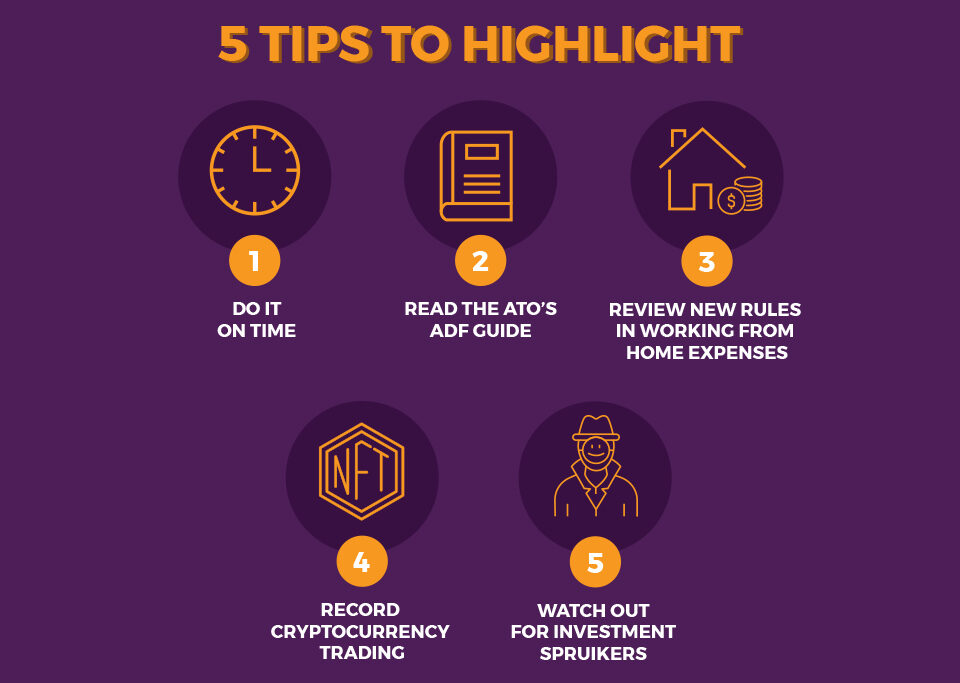Income Tax
Declaring your income, making suitable claims and lodging your tax returns on time. This guide and the ADF member specific information on the ATO website can support you in completing your tax returns each year.
In Australia, individuals pay tax on a Pay As You Go system, which means you pay income tax on your money as you earn it. Defence deducts an appropriate amount of tax from your pay each fortnight.
We work on a sliding tax scale, so the more you earn, the higher the percentage of tax you pay. The highest rate of tax you pay is known as your marginal tax rate.
The table below shows the current marginal tax rates for Australian residents and illustrates how the tax would be calculated for an individual earning $60,000 a year.
The tax year, or financial year, runs from 1 July to 30 June.
Resident tax rates 2023–24
| Taxable income | Tax on this income |
|---|---|
| 0 – $18,200 | Nil |
| $18,201 – $45,000 | 19 cents for each $1 over $18,200 |
| $45,001 – $120,000 | $5,092 plus 32.5 cents for each $1 over $45,000 |
| $120,001 – $180,000 | $29,467 plus 37 cents for each $1 over $120,000 |
| $180,001 and over | $51,667 plus 45 cents for each $1 over $180,000 |
For the most up to date information, visit the ATO website
Example: If you earned $80,000 per year, your tax would be calculated like this:
| Taxable income | Tax payable | |
|---|---|---|
| $18,200 | Nil | =$0 |
| $26,800 ($45,000 – $18,200) | x 19c | = $5,092 |
| $35,000 ($80,000 – $45,000) | x 32.5c | = $11,375 |
| Total: $80,000 | Total: $16,467 | |
Income and deductions
Do you know what income ADF members must declare or what expenses are allowed as deductions? This short video tells you what you need to know to get your tax right.
Making Claims
The Australian Tax Office (ATO) has guides for ADF members that explain what income must be declared and what is allowable as deductions. Work-related deductions could include car or travel expenses, uniform expenses, mess fees, self-education expenses you have paid for, and fitness expenses for certain ADF members. If you’ve worked from home, you may be able to claim phone, internet and other home office expenses. The ATO has information available on their website on what you can claim.
Generally you will need to declare all of your income, other than tax-exempt deployment or reservist income. If you have been on deployment, you will have been notified before you deployed if your deployment income fell into a tax-exempt category.
For deductions to be allowed:
- you must have spent the money yourself and not been reimbursed
- it must directly relate to earning your income
- you must have a record to prove it, or be able to demonstrate how you calculated the claim.
Don’t be tempted to make ‘dodgy’ claims, chances are you’ll be caught and issued with fines and other penalties. The last thing you need is a tax audit.
You can lodge your tax return for free through myGov.
Lodging your tax return
If you are completing your own tax return, using the myGov website, it needs to be lodged by 31 October. If you are using a registered tax agent or accountant, you’ll have until 31 March the following year.
Going on deployment?
Depending on where you are deploying to, and for how long, you may not pay tax on some of your earnings. While paying no tax for a period is generally a positive for you, there may be other factors to consider. Take a look at Preparing for Deployment section for more information.
Accounting & tax advice
For help with a simple tax return, a registered tax agent may be all you need. You can find a registered tax agent in your area by using the search function on the Tax Practitioners Board website.
If your financial affairs are more complex, you may be better off speaking to a qualified accountant that has completed additional professional training. You can find a list of appropriately qualified accountants on the websites of industry associations such as Chartered Accountants of Australia and New Zealand or CPA Australia.







